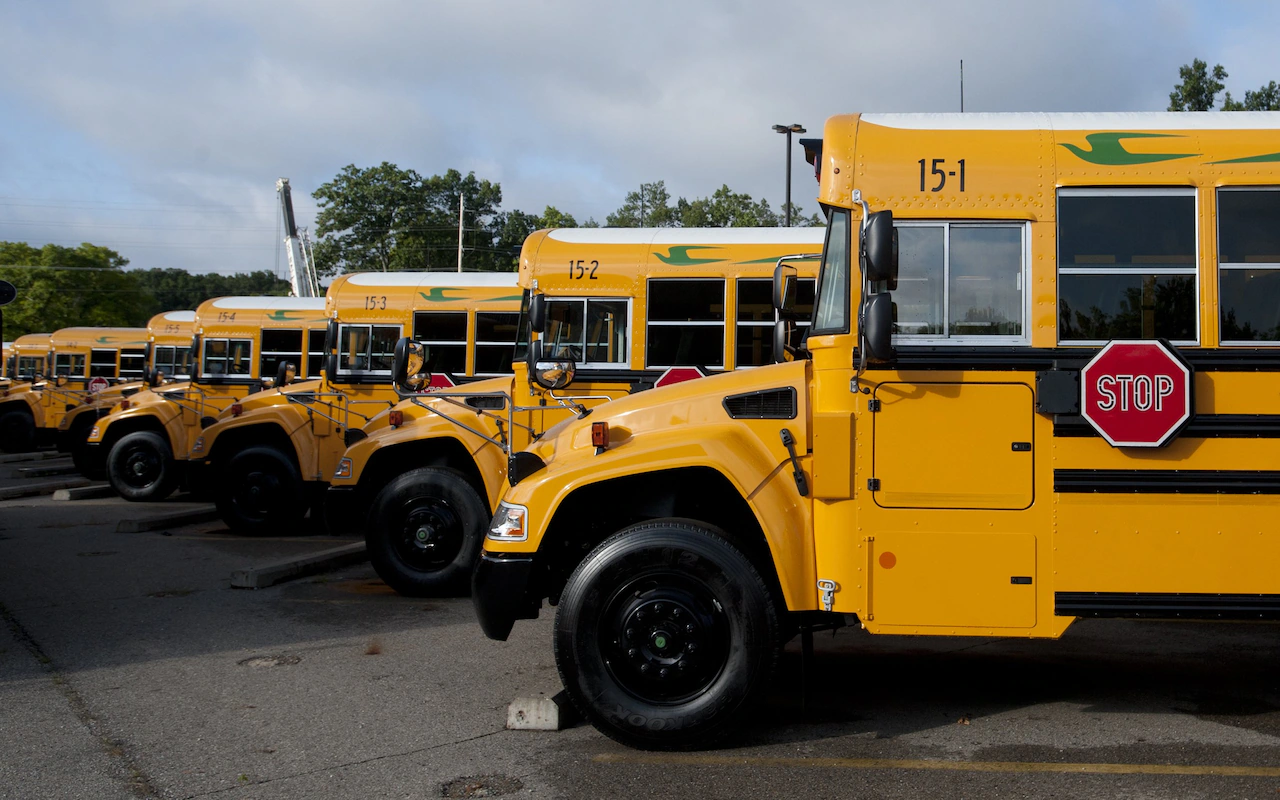Copyright M Live Michigan

Since the pandemic, public schools have increasingly become political battlegrounds. Once mundane school board meetings have seen heated debate over mask mandates, critical race theory and gender and sex education issues. While not all of these issues are decided by school boards, parents want to know where these currently nonpartisan elected officials stand, said state Rep. Jason Woolford, R-Howell. That’s why Woolford has proposed a bill that would change state law to require school board candidates declare which party they belong to. “Our schools are battlegrounds for big issues, and those right now are curriculum, parental rights and funding,” Woolford said. “Right now, candidates can hide their true leanings because ballots don’t show this party affiliation, which then forces you to dig through their records or guess where their stances are. And this is why party labels give you a clear signal. Republicans might push for school choice, etc., or Democrats may focus on equity. “You deserve to know who aligns with your values without having to play a detective.” Woolford’s bill was initially set for a committee vote Tuesday, Oct. 21, but was pulled from the agenda to undergo some technical changes, according to House Republicans. The bill is expected back before the House Election Integrity Committee later this year. The bill is unlikely to pass the Democratic-majority Senate if it clears the House. During a hearing on the bill last month, there was debate about whether making school board elections partisan would give voters more transparency and information in choosing their representatives or would instead increase political division and decrease compromise at the expense of children. School boards in Michigan are tasked with approving recommended curriculum, hiring and firing superintendents, establishing policies for the district, adopting district budgets, negotiating with employee unions and more. School board positions are currently nonpartisan under state law and school board elections are held in November of even years. Because the races are nonpartisan, there is no primary. Jennifer Smith, director of government relations for the Michigan Association of School Boards, told lawmakers that the majority of the association’s members are strongly opposed to the partisan change. She said her members don’t identify as political figures but rather as school board members. “We want to make sure when they are at the board table, they are making the best decisions for the school, not for the party,” Smith said. “We don’t want an issue to come up that a party feels very strongly about but is not in the best interest of the school and have a member torn between, do I vote with my party platform because that’s who I say I am or do I vote with the best interest of the school because that’s who I’m supposed to be?” Kyle Zawacki, legislative director for the ACLU of Michigan, said the change would stifle collaboration. “With political polarization at an all time high, public school board elections remain one of the few arenas where community members, regardless of political affiliation, can come together in a shared interest of educating students regardless of political party,” Zawacki said. “House Bill 4588 would threaten to inject this partisan ideological conflict and division into local education governance, making collaboration that much more difficult.” Zawacki said four states in the U.S. currently require partisan school board elections and five other states allow partisan elections in some areas. Greg Keller, treasurer for the Hartland Consolidated Schools Board of Education, said when he was a candidate for school board, the most frequent questions he received from constituents were about his values and whether he was liberal or conservative. “As a governing body, this should serve to inform you that the people of Michigan are looking for more transparency in local school board elections,” Keller said. “Allowing candidates to declare their party affiliation gives voters a bigger window into a candidate’s philosophies and priorities. This allows voters to know where candidates stand on important core issues such as curriculum, financial responsibility, social policies, etc. “In non partisan elections, candidates can obscure their true beliefs, leaving parents and voters only to guess at a candidate’s stance on matters that affect their children and grandchildren.” In addition to greater transparency for voters, party labels would also increase voter turnout in school board races and meet an already politicized education environment, Woolford said. “From book bans to trans policies, national debates are shaping our classrooms,” he said. “And in 2022, outside groups poured money into Michigan’s nonpartisan races, pushing these hidden agendas. Partisan labels would end this charade, letting parties recruit candidates who stand for their clear principles so that you actually know what you’re getting before you vote.” State Rep. Pat Outman, R-Six Lakes, said he was of two minds about the proposal. “We’ve seen political ideology creep in there, and I understand it’s frustrating for a lot of people,” Outman said. “My fear is this maybe accelerates this and pours gasoline on that. Maybe it doesn’t. Maybe this is the proper way to do it. Maybe we should have more transparency with our elected officials running for school board positions.” Other concerns with the change would be that school board candidates would be forced into primaries, which opponents said would drive up campaign costs and limit voter choice due to candidates being eliminated in the primary. “This structure, if the bill were to be implemented, would reduce the ability for voters to choose from the entire gamut of candidates, instead of forcing them to just choose half or even less than half of the candidates that are running,” said state Rep. Matt Koleszar, D-Plymouth. Other organizations opposing the bill are the Michigan Department of Education, the Michigan Association of Intermediate School Administrators, the Michigan Education Association, Michigan Alliance for Student Opportunity and the Michigan Democratic Party. Pure Integrity Michigan Elections is in favor of the bill. Pure Integrity Michigan Elections officials say they’re a nonpartisan nonprofit supporting election integrity.



